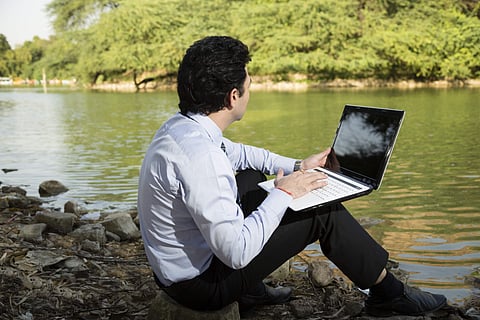

Over the past decade, India has been emerging as a major industrial force. This also means that these corporate giants or business leaders will have to measure their responsibility towards the environment. We have very limited space — and the way organisations are growing, the agricultural field is reducing. The food production has begun decreasing. We have to feed nearly 9 billion people by 2050. So, we have no option but to go towards sustainability. So far, there is no fixed sustainable model available in the world that can be uniformly applied.
The demand for environmental sustainability experts will go up in a big way. In the 80s, the Ministry of Environment and Forests was created, but nobody at that time envisaged how important it would be. Now, we all know how many developmental projects are held up because of environmental clearance. And after witnessing Delhi pollution, many people have started addressing environmental issues. They have realised the importance of natural resources. The renewable energy sector is diversifying rapidly and, as a result, employment opportunities are on the rise. In order to ensure that the high demand for skilled professionals is met, it is important to ensure that there are enough educational and training opportunities. A number of institutions across the country are conducting courses in environmental sustainability, ranging from government universities to private institutions. There are courses related to environmental sustainability at the diploma, graduate and postgraduate levels to cater to the growing demand for professionals trained in environmental issues.
For this reason, we need to have location-specific sustainable development models. This sustainability will keep on evolving over a period of time-based on the need and future projections. For instance, we know what’s happening in Delhi — it has become one of the most polluted cities. There’s no major restriction on the construction of buildings and roads. If a futuristic model could have been planned in the past, we wouldn’t be facing an environmental threat in terms of pollution and a rise in the temperature. Humans have always polluted and destroyed nature before trying to recreate it. Sadly, once the damage is done, we can’t recreate nature. So, it’s important to devise models based on a realistic assessment.
In our system, we need to involve environmental experts at the planning stage. If we don’t do that, then nobody can ensure the well-being of our society. Practical experts who know about the environment need to be involved in decision-making and policy planning. We have to learn from the past, otherwise, the environment will continue to degrade. The biggest challenge today is natural resource management. We have resources but we try to waste them due to no/improper planning. The future requires a lot of natural resources management which is very important for a country like ours. We have to learn to manage its resources in an efficient way. For instance, we have 18 per cent of the world’s population, but we have only 4 percent of the fresh water. We still haven’t realised the value of water. In terms of water and energy management, we need to have a paradigm shift in our thinking process.
(The author is the Director, Institute of Bioresources and Sustainable Development, Manipur. He strives towards improving the quality of lives of people living in coastal and rural India through the application of Science and Technology at the grassroot level. Through his relentless efforts, for close to a quarter century now, he has contributed immensely to the socio-economic empowerment of the people and protection of the environment through seaweed farming in coastal India as well as sustainable utilisation of bioresources in the Northeast. He has associated with a number of festivals and biodiversity programmes there. He has published a large number of papers and reviewed journals, including ten books.)
